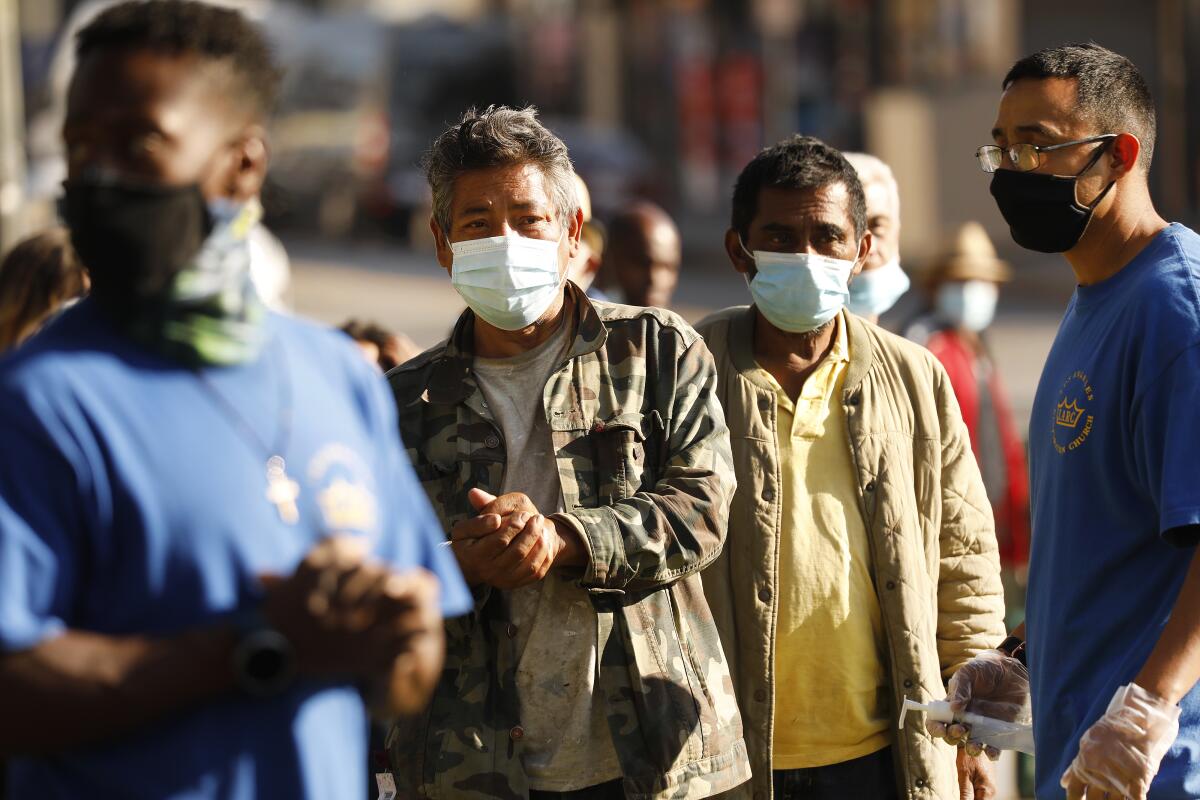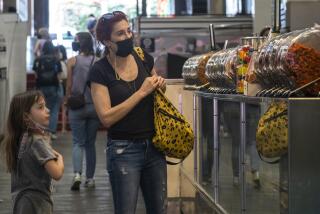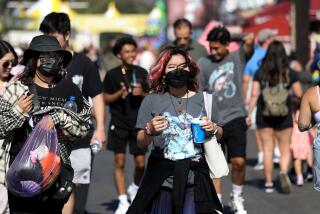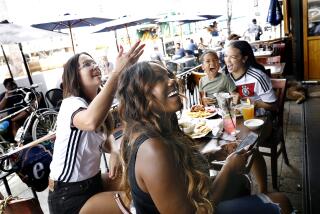New COVID-19 restrictions hit L.A. County: What you need to know

Los Angeles County on Friday ordered restaurants and nonessential stores to close their doors to the public at 10 p.m. and place a cap on the number of people allowed at outdoor gatherings — a maximum of 15 people from no more than three households. It’s part of an attempt to slow the dangerous spread of COVID-19.
Here are the details:
- For nonessential businesses permitted to operate indoors — including retail stores, offices, personal care services — occupancy will be limited to 25% maximum capacity.
- The number of patrons at outdoor restaurants, breweries and wineries will be limited to 50% of the maximum outdoor capacity.
- The number of customers at outdoor cardrooms, mini-golf, go-karts and batting cages will be limited to 50% maximum outdoor capacity.
- Services at personal care establishments may only be provided by appointment to customers wearing face coverings by staff wearing face coverings. Those that require either the customer or the staff to remove their face covering, such as facials and shaves, are not permitted. Food and drinks cannot be served at these establishments to customers.
- Restaurants, breweries, wineries and all other retail establishments deemed nonessential must close their doors to the public from 10 p.m. to 6 a.m. But they can continue to offer takeout and delivery service during those hours.
With COVID-19 spreading at a rapid rate, officials have warned that other public health interventions may become necessary to stem transmission. Among those contingencies:
- If L.A. County reaches 4,000 average cases daily over a five-day period, officials would stop outdoor dining at restaurants, returning eateries to offering only delivery and takeout service for the first time since May.
- Should the numbers of new cases further worsen to more than 4,500 cases a day on average over a five-day period, the county would impose a new stay-at-home order that would only generally allow essential workers and people securing essential services to leave their homes, as well as implement a 10 p.m.-to-6 a.m. curfew that only exempts essential workers.
L.A. officials said they are alarmed by the rapid spread of the infection. For the two-week period that ended Thursday, average daily cases over a five-day period have doubled, from more than 1,700 cases a day to nearly 3,400 cases a day.
In the most pessimistic scenario, L.A. County could cross a red line as early as Thanksgiving week that would put the region on the cusp of a new stay-at-home order. Officials said they would give three days’ notice before a new health order would go into effect.
A new stay-at-home measure would be another body blow to businesses struggling to survive amid the pandemic. Officials said they want to keep businesses open but might not have a choice if the outbreaks cannot otherwise be slowed.
“At this point, no one should be still underestimating the spread of this virus, nor should anyone be questioning the actions we still need to slow the spread and lessen its impact on our collective health and our local economy,” L.A. County Health Officer Dr. Muntu Davis said. “With the surge in transmission of COVID-19 in Los Angeles County, it is safe to assume that many people are infected without even knowing it yet.”
Meanwhile, California public health officials on Thursday announced a limited nighttime stay-at-home order starting this weekend that is designed to “reduce opportunities for disease transmission with the goal of decreasing the number of hours individuals are in the community and mixing with individuals outside of their household.”
In other words, it’s intended to discourage social gatherings such as late-night meals at outdoor restaurants and private parties.
Here’s what the mandatory order does:
- Prohibits all gatherings with members of other households and all activities conducted outside one’s residence, lodging or temporary accommodation with members of other households from 10 p.m. to 5 a.m in purple tier counties, which represent roughly 94% of California’s population.
- Allows people to leave home to walk their dog or take walks with people they live with, buy groceries or pick up drugs at the pharmacy late at night, pick up or receive takeout food, travel to the emergency room or urgent care or for other essential purposes;
- Does not affect activities associated with the operation, maintenance or use of critical infrastructure;
- Goes into effect Saturday and lasts through Dec. 21, though it could be extended.
- Does not apply to people experiencing homelessness. Nothing in the order prevents any number of people from the same household from leaving their residence, lodging or temporary accommodation, as long as they do not engage in any interaction with (or otherwise gather with) any number of people from any other household, except as specifically permitted by the order.
- Allows local authorities to decide how this order might be enforced if needed.
More to Read
Sign up for Essential California
The most important California stories and recommendations in your inbox every morning.
You may occasionally receive promotional content from the Los Angeles Times.













